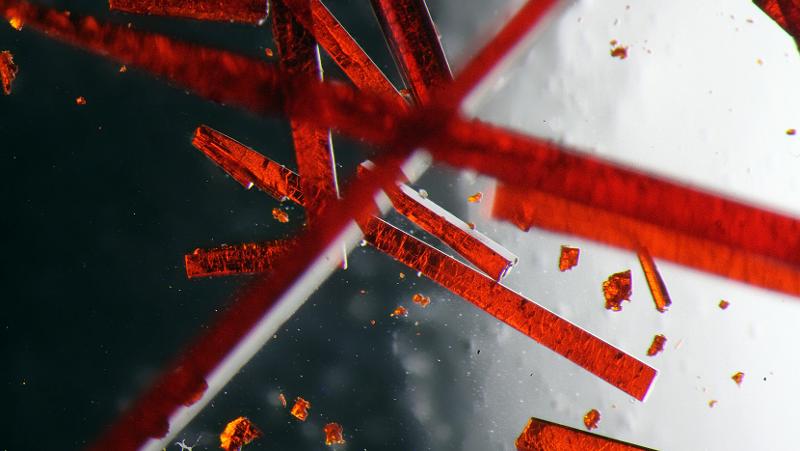
Roll up, roll up to QUT’s Street Science! booth at the World Science Festival Brisbane (#WSFB2019) and have your portrait done by a robot, or find out about ‘Oobleck’, a seemingly ‘magical’ slime being used to create a shape-shifting protective beanie.
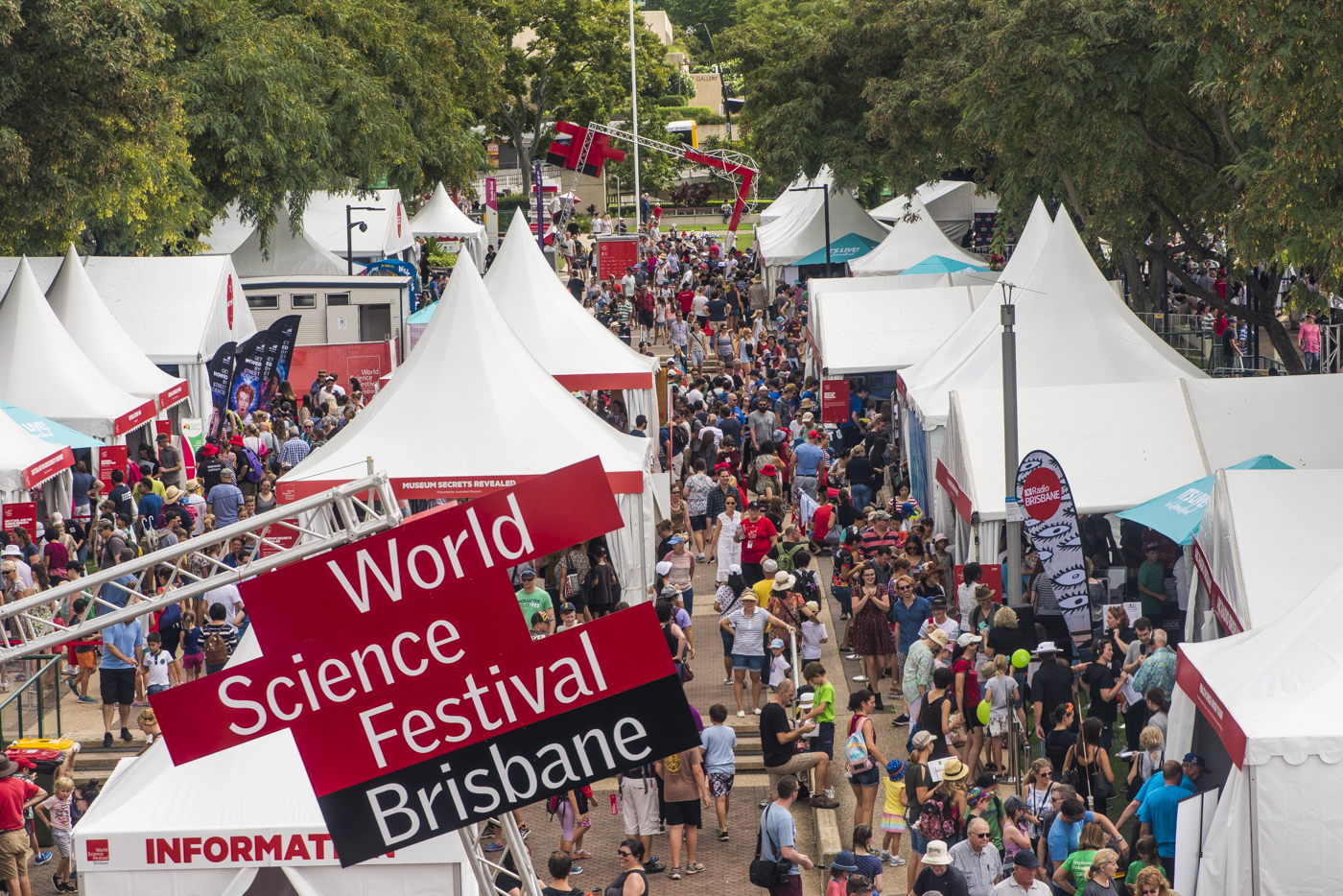
Be dazzled by stunningly beautiful images from science, sew on a giant button in the name of reducing textile waste or sink your hands into fermented kombucha curds to discover the wonders of vegan leather and the possibilities of ‘growing’ your own clothes at home.
These are some of the fun, free QUT science activities in store for visitors to Street Science! Over the weekend of 23 and 24th of March as part of #WSFB2019 and open from 10am-5pm at the South Bank Cultural Forecourt.
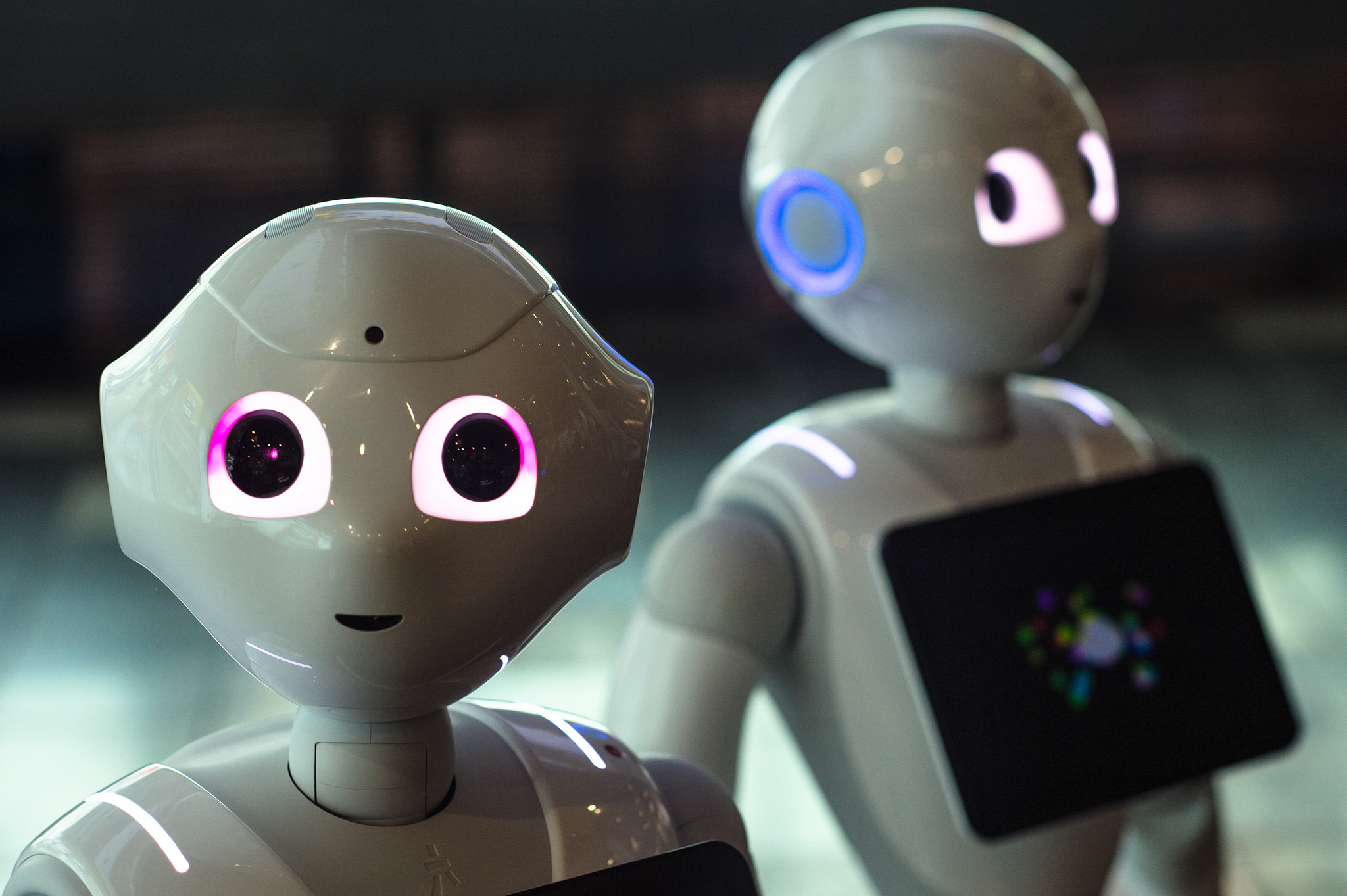 QUT is a proud academic partner of #WSFB2019, and our Creative Industries Faculty is leading QUT's participation. Researchers and scientists will be hands-on in the Street Science! Create, Experience & Learn with QUT tent which will be fronted by Pepper, the world’s first personal humanoid robot.
QUT is a proud academic partner of #WSFB2019, and our Creative Industries Faculty is leading QUT's participation. Researchers and scientists will be hands-on in the Street Science! Create, Experience & Learn with QUT tent which will be fronted by Pepper, the world’s first personal humanoid robot.
Our experts are also part of WSFB’s packed program of discussions, workshops and stage shows, including signature event Innovation by Design: Geeks, Style Gurus & Sciencepreneurs. QUT’s Distinguished Professor Dietmar W. Hutmacher and Dr Alice Payne will be joined on the panel by Viktoria Modesta, a bionic pop artist, creative director and futurist who bridges performance art, music and fashion with technology, science and medicine.
Highlights of the QUT booth for Street Science!
Pose for a robotic portrait
Led by Dr Jared Donovan, this QUT Design Robotics research project aims to demonstrate how robotics can be creative and fun. Visitors will be able to take home a portrait done by a robotic arm using facial recognition and a 3D-printed pen holder capable of drawing in three different styles. Come and see how the robot draws your portrait!
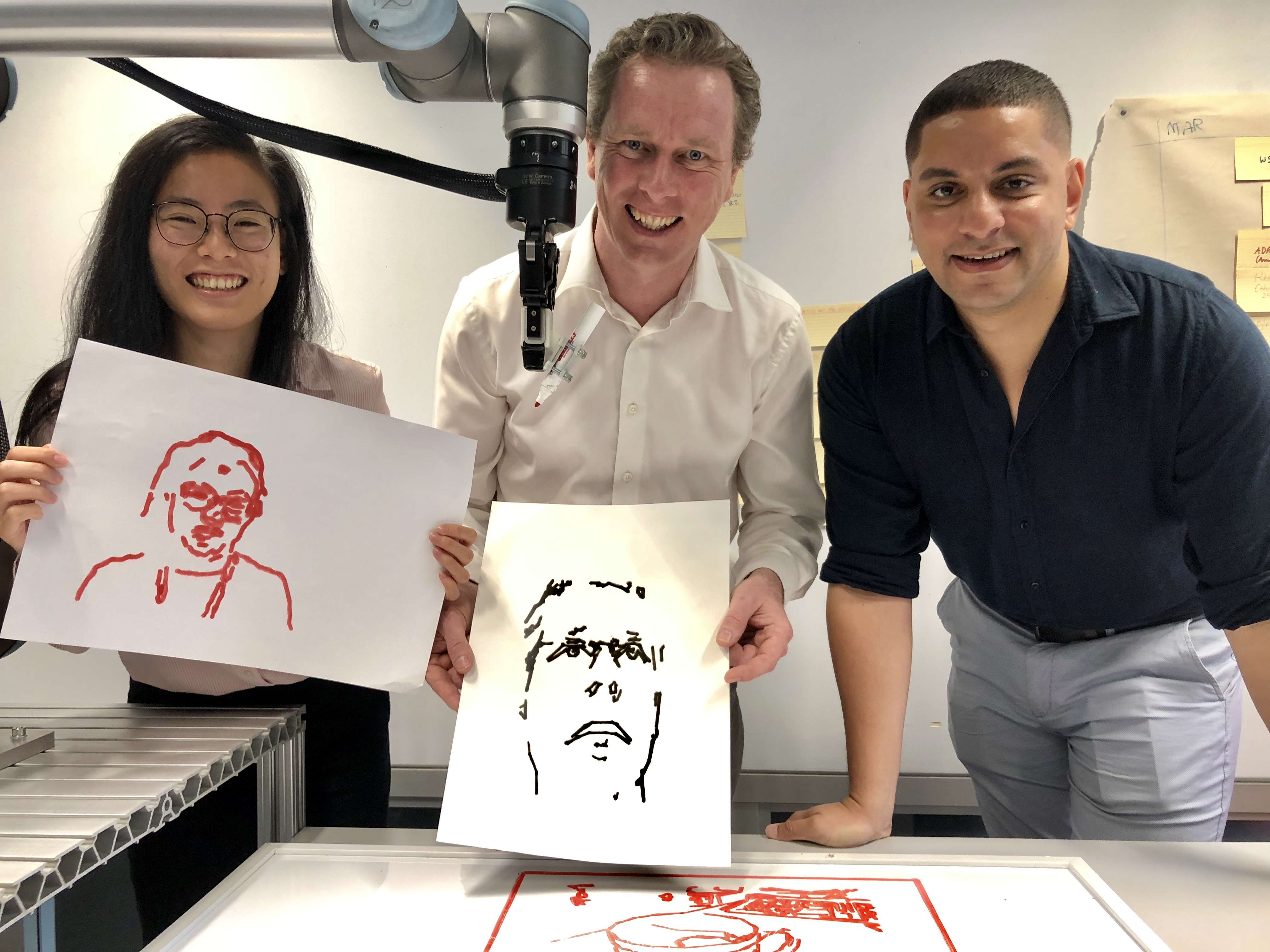
Bio-textiles and the future of home-grown clothes
Could you grow your own clothes at home? That’s what QUT experts see as the new frontier where science and design come together to create bio-textiles – cloth made from living organisms. QUT researchers, in conjunction with The Edge (State Library of Queensland), have been experimenting growing a material that may have the potential to reimagine a more sustainable future for textile production. Meet the QUT Design researchers, and experience first-hand the potential for ‘next-gen’ textile creation - watch it grow and check out items made from it. Get inspired to partake in citizen-science to also grow your cloth at home.
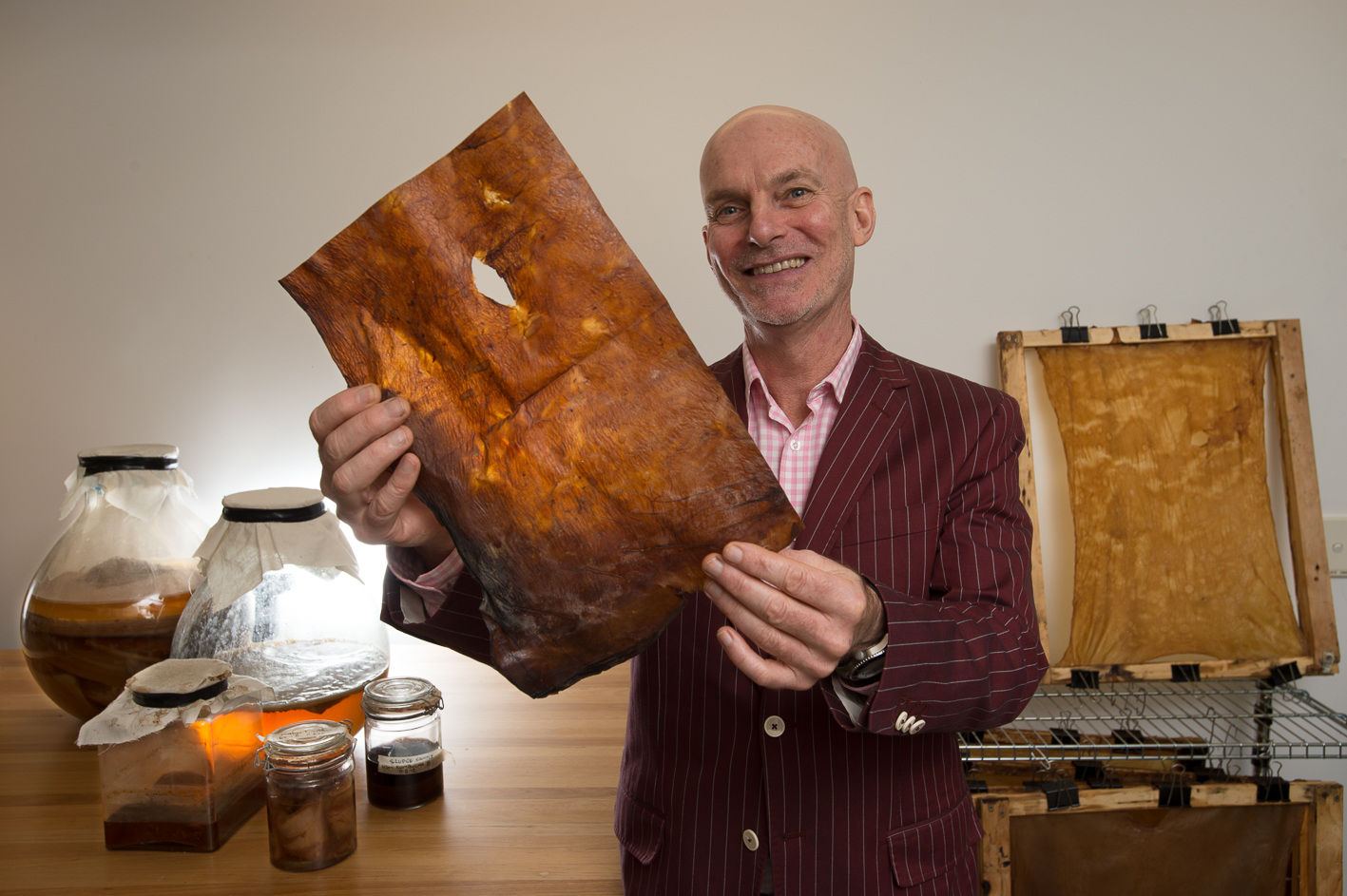 QUT's Dean Brough with some 'vegan' leather
QUT's Dean Brough with some 'vegan' leather
Love your clothes to reduce waste
Do you know where your clothes come from? Or where they go?
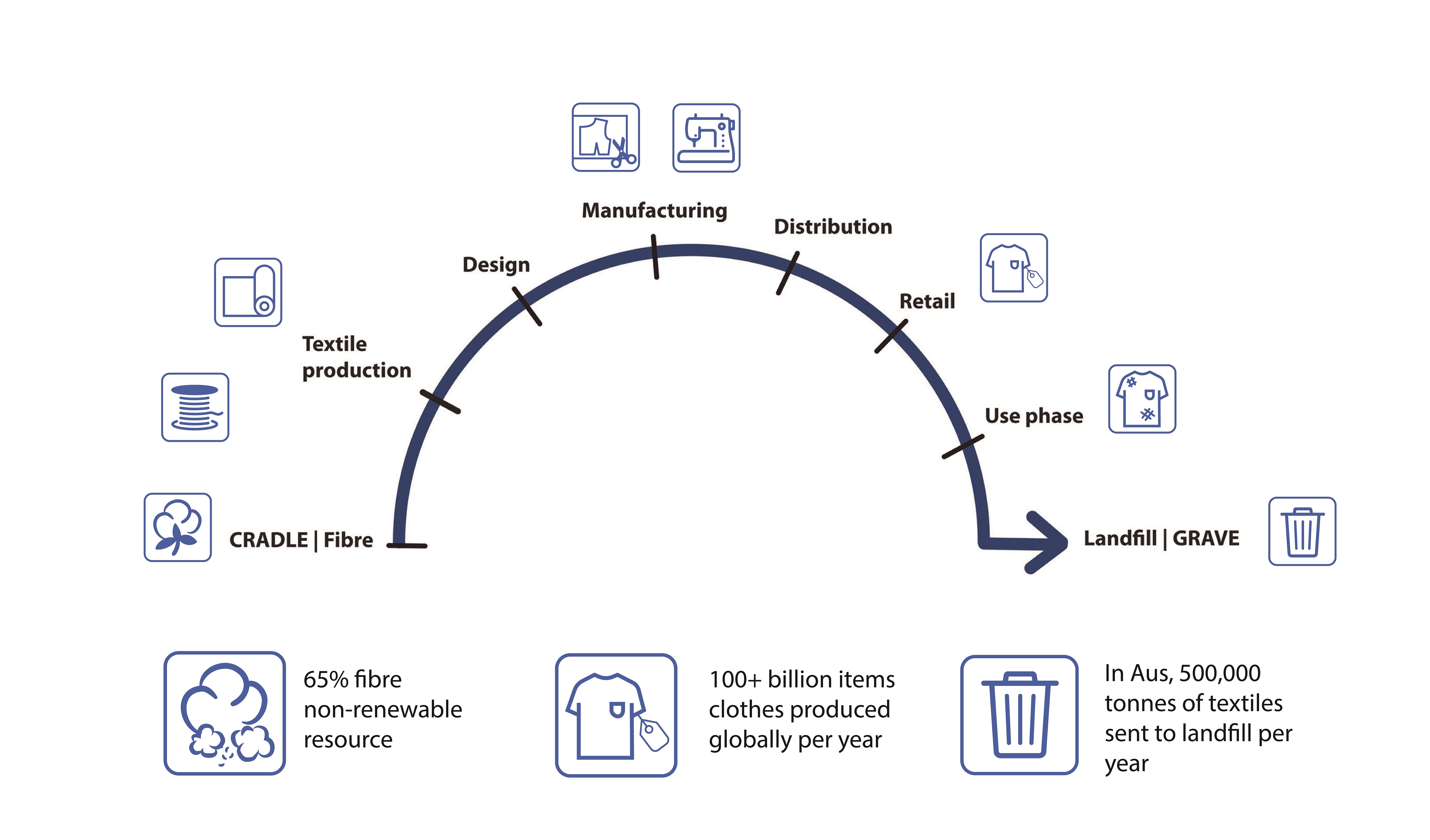 QUT researchers are tracking the journeys our clothes take. Their aim is to reduce textile waste through keeping clothes and materials in circulation for longer. Everyone can play a role in loving their clothes - from caring for school uniforms to repairing jeans. In the display kids will learn where their clothes come from and the challenges around textile waste. They can try out repair skills through sewing giant buttons as well as learn how QUT scientists are finding innovative uses for waste textiles. These include denim waste transformed through fungal conversion into coat hangers, and enzymes used to break down blends of wool and polyester.
QUT researchers are tracking the journeys our clothes take. Their aim is to reduce textile waste through keeping clothes and materials in circulation for longer. Everyone can play a role in loving their clothes - from caring for school uniforms to repairing jeans. In the display kids will learn where their clothes come from and the challenges around textile waste. They can try out repair skills through sewing giant buttons as well as learn how QUT scientists are finding innovative uses for waste textiles. These include denim waste transformed through fungal conversion into coat hangers, and enzymes used to break down blends of wool and polyester.
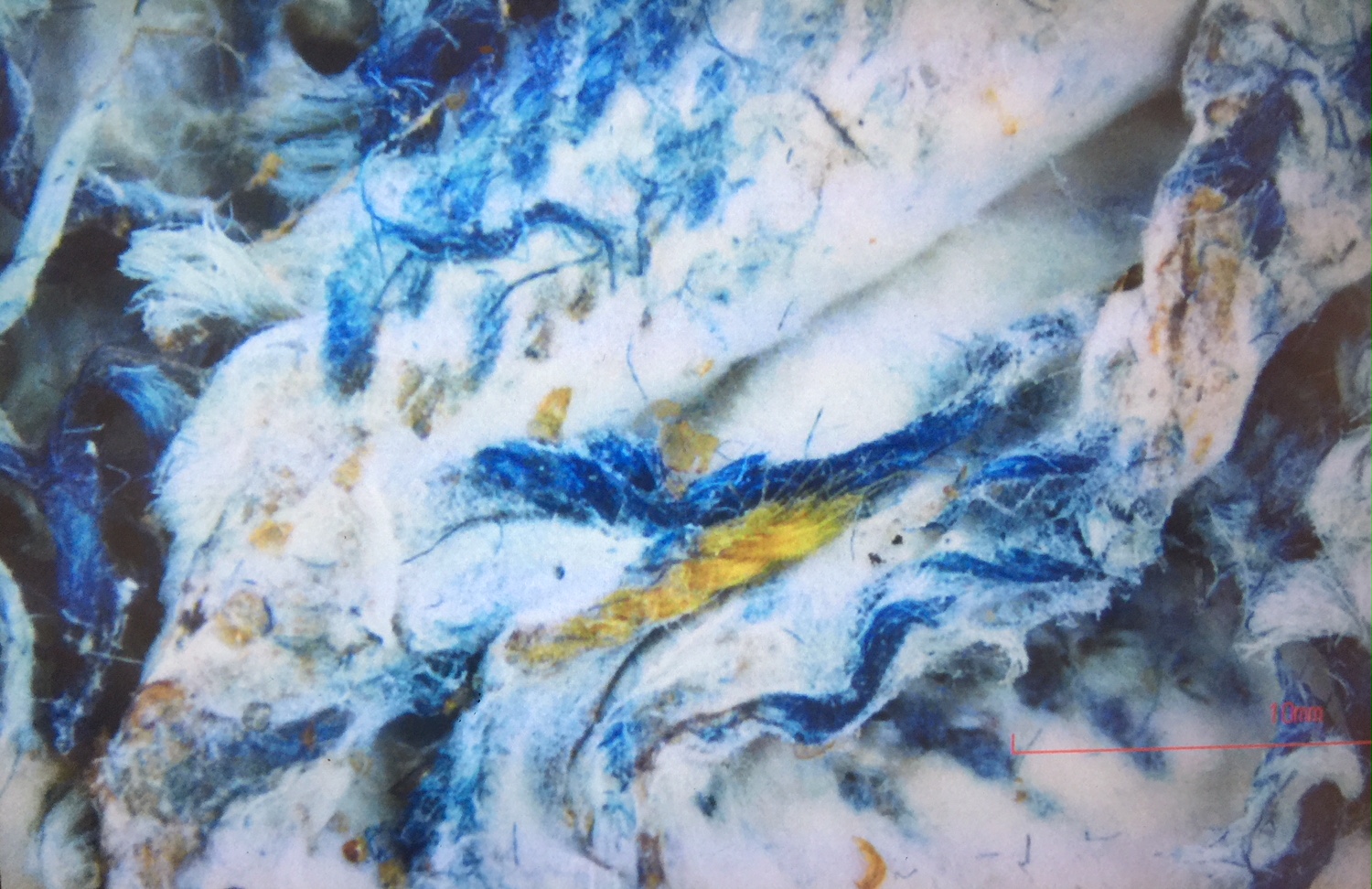
Denim waste like this is being used to make coat hangers at QUT
Find out how ‘slime’ is the main ingredient of new safety headgear
An entrepreneurial QUT engineering student has invented a shape-shifting beanie to give snow-goers a more comfortable alternative to a helmet. It looks like a knitted beanie and is soft and flexible, but a special lining inside the ANTIordinary “soft helmet” makes it go rock hard when whacked. The beanie’s creator, QUT medical engineering student Rob Joseph, has co-founded the ANTI start-up with QUT business student Liam Norris and engineer Brodie Robinson. The ANTI team will be on hand to demonstrate the beanies and how they have adapted ‘oobleck’ – a non-Newtonian, slime-like substance made from a mixture of cornstarch and water, to create them.
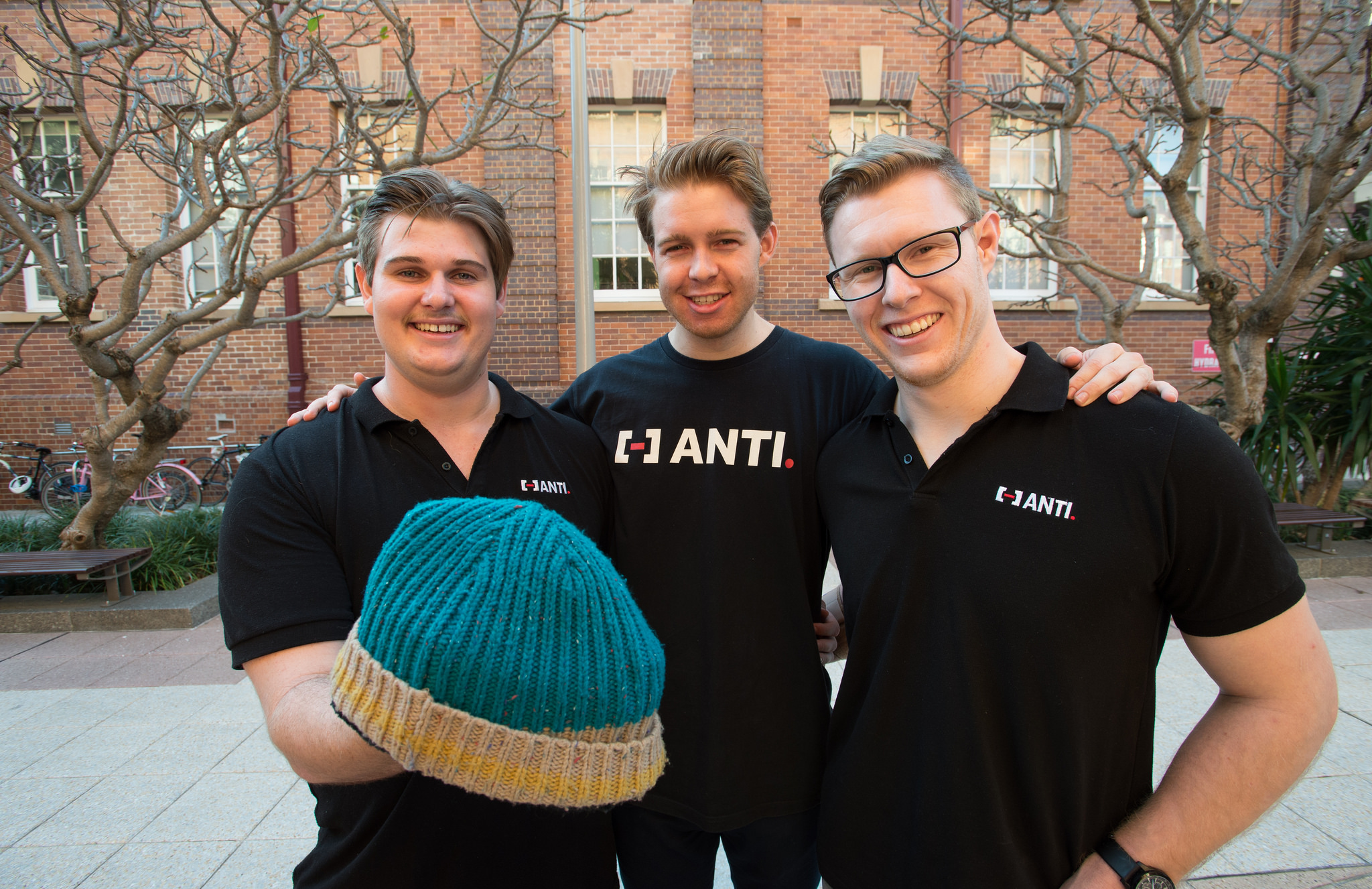
QUT medical engineering student Rob Joseph (left) has developed a shape-shifting beanie style helmet for snow sport enthusiasts, with student colleagues Liam Norris and Brodie Robinson
Science in Focus – when a picture is worth a thousand words and more
Enjoy a visual installation displaying striking and unexpected scientific imagery set to a musical score, revealing diverse aspects of QUT research and delighting with its beauty. This installation celebrated a collaboration between QUT Institute for Future Environments, QUT Creative Industries Faculty and the talented QUT staff and students who have submitted these amazing images to the QUT Science in Focus competition over the last five years. Learn more about the winners from the 2018 competition.
Beat the Machine
Autonomous vehicles are one of the potential revolutionary technological developments that could transform our cities and how we get around. In QUT’s Beat the Machine game, players go head to head with some of the camera-based navigation technology developed at QUT for autonomous vehicle navigation. Developed by robotics expert and Future Fellow Professor Michael Milford, the game is centred around the key problem of ‘place recognition’ or ‘place matching’ – looking at a photo of a place and working out whether it matches to another image. Once you have played, the game shows you the answers you and the machine got right – and scores you compared to the average person and the ‘machine’. Come give it a go!
Digital Garden at Street Science and The Cube
For The Cube’s 2018 residency program artists Man & Wah created Digital Garden, an interactive work depicting local flora investigating themes of biodiversity and cosmic existence. QUT’s Street Science booth will feature a video montage of the high-resolution videos and content created during the residency.

Complete your World Science Festival Brisbane weekend by experiencing the interactive Digital Garden at The Cube on QUT’s Gardens Point campus. The project features the hyper detailed large scale audio-visual projections and 22 digitally interactive images of plants.
Plus, don’t miss the chance to see Physics Observatory, a game-like digital project allowing you to observe and explore the effects of different planetary gravities.
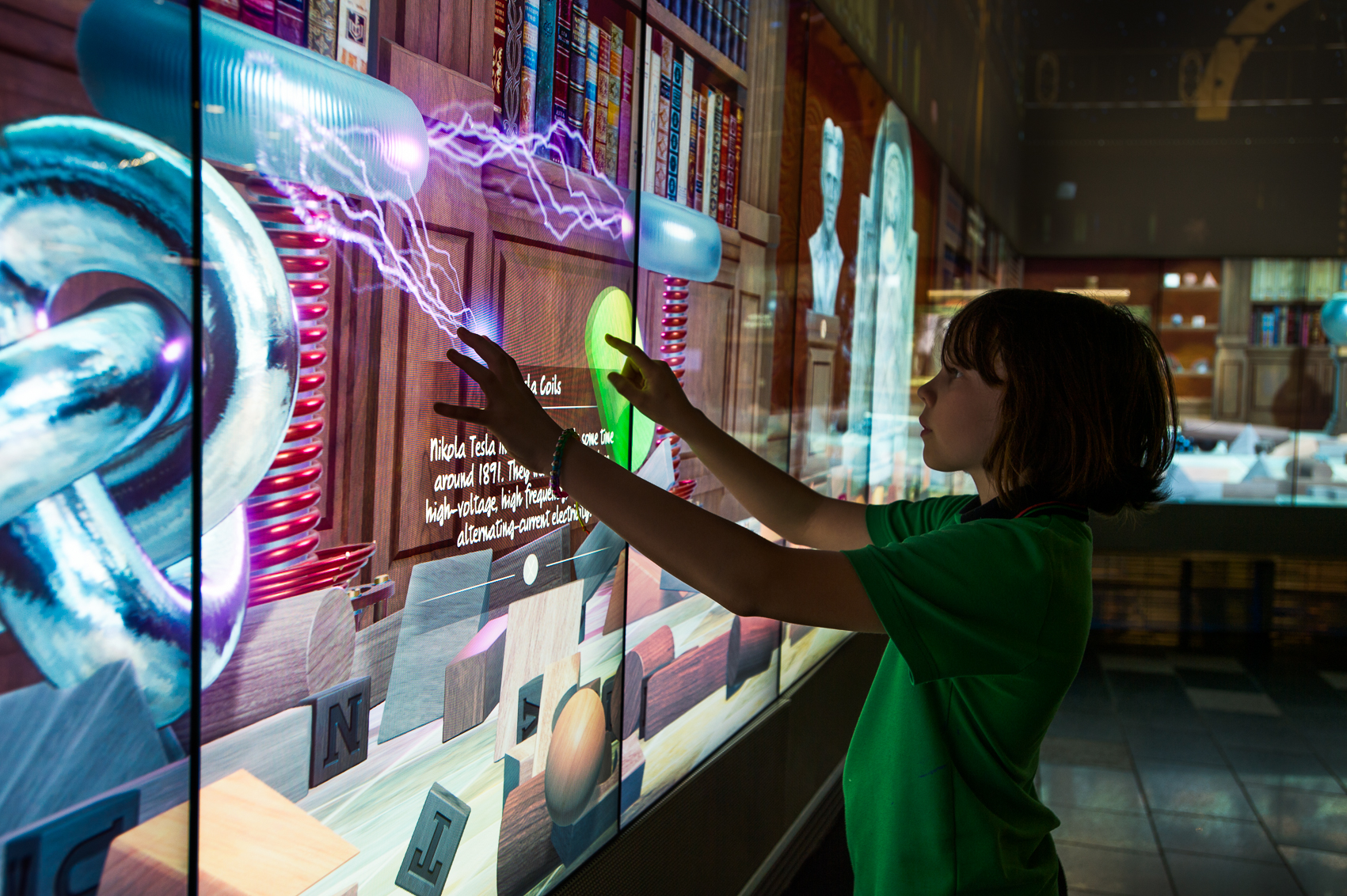
Digital Garden and Physics Observatory will be screened at The Cube on 23-24 March.
Our QUT experts are also at:
Innovation by Design: Geeks, Style Gurus & Sciencepreneurs (Concert Hall, QPAC, Sunday 24 March)
Dr Alice Payne (below right) is senior lecturer in fashion in QUT’s School of Design. Her research centres on environmental and social sustainability throughout textile and apparel industry supply chains.
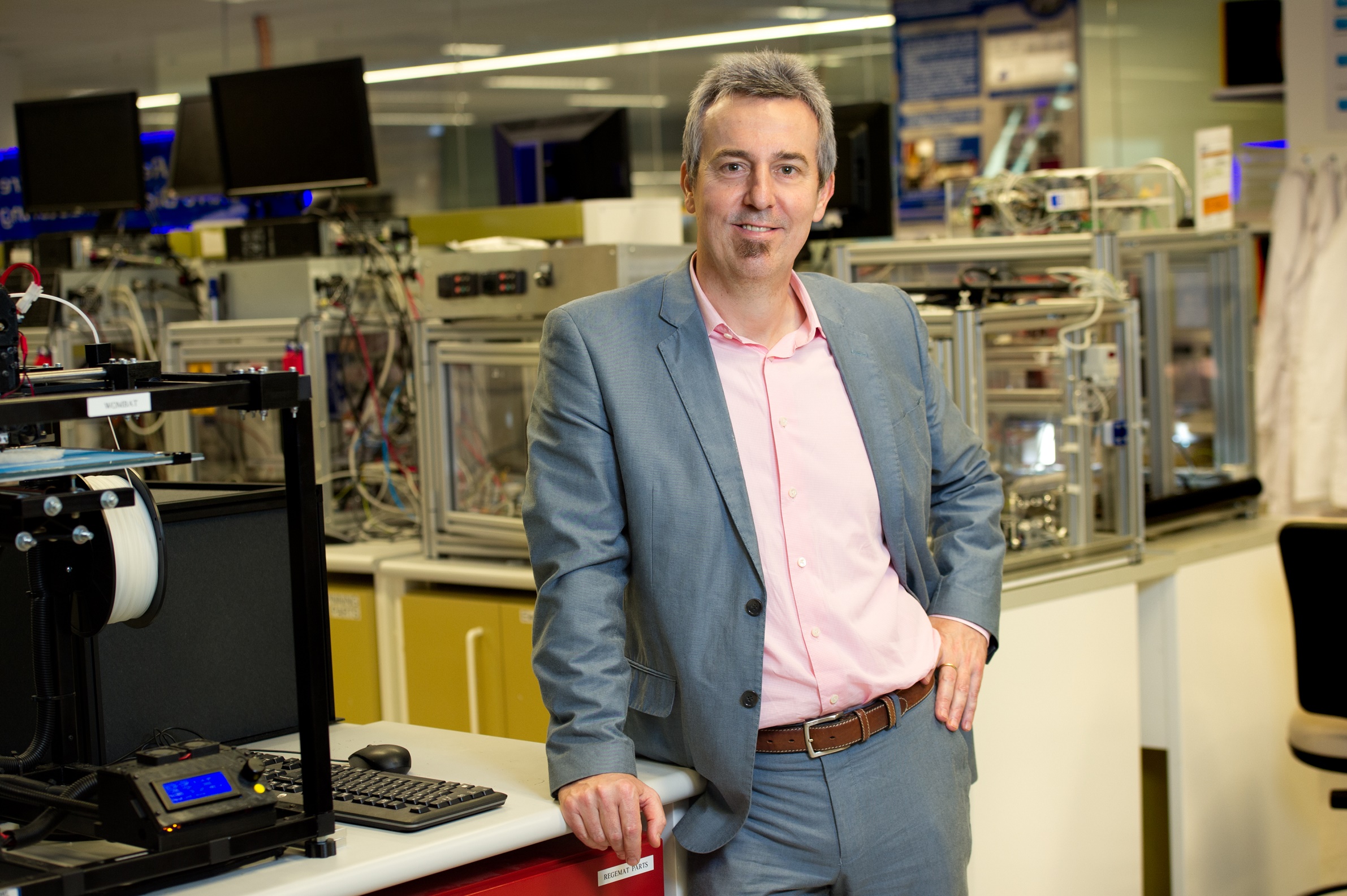
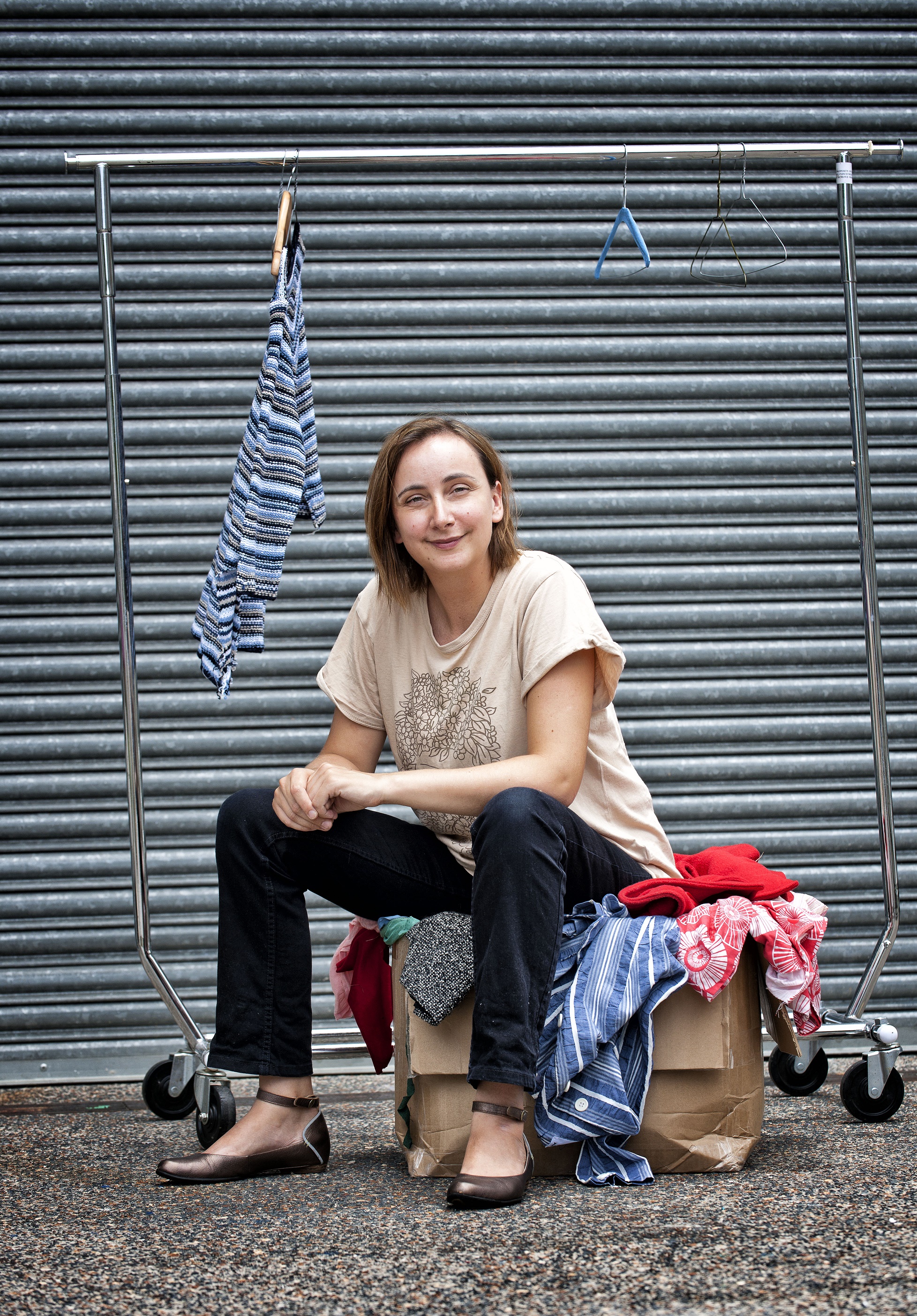 Distinguished Professor Dietmar W. Hutmacher (left) is director of the QUT-based Centre for Regenerative Medicine and the ARC Training Centre in Additive Biomanufacturing. They join a group of innovators to explain the science behind their inspirations, from wearable technology and smart fashion to medical and engineering devices. The QUT-partnered signature event also features Viktoria Modesta, a bionic pop artist who explores modern identity through performance, fashion, avant garde visuals, technology and science.
Distinguished Professor Dietmar W. Hutmacher (left) is director of the QUT-based Centre for Regenerative Medicine and the ARC Training Centre in Additive Biomanufacturing. They join a group of innovators to explain the science behind their inspirations, from wearable technology and smart fashion to medical and engineering devices. The QUT-partnered signature event also features Viktoria Modesta, a bionic pop artist who explores modern identity through performance, fashion, avant garde visuals, technology and science.
Making it Great: Celebrating Queensland Invention (Cremorne Theatre, QPAC, Thursday 21 March)
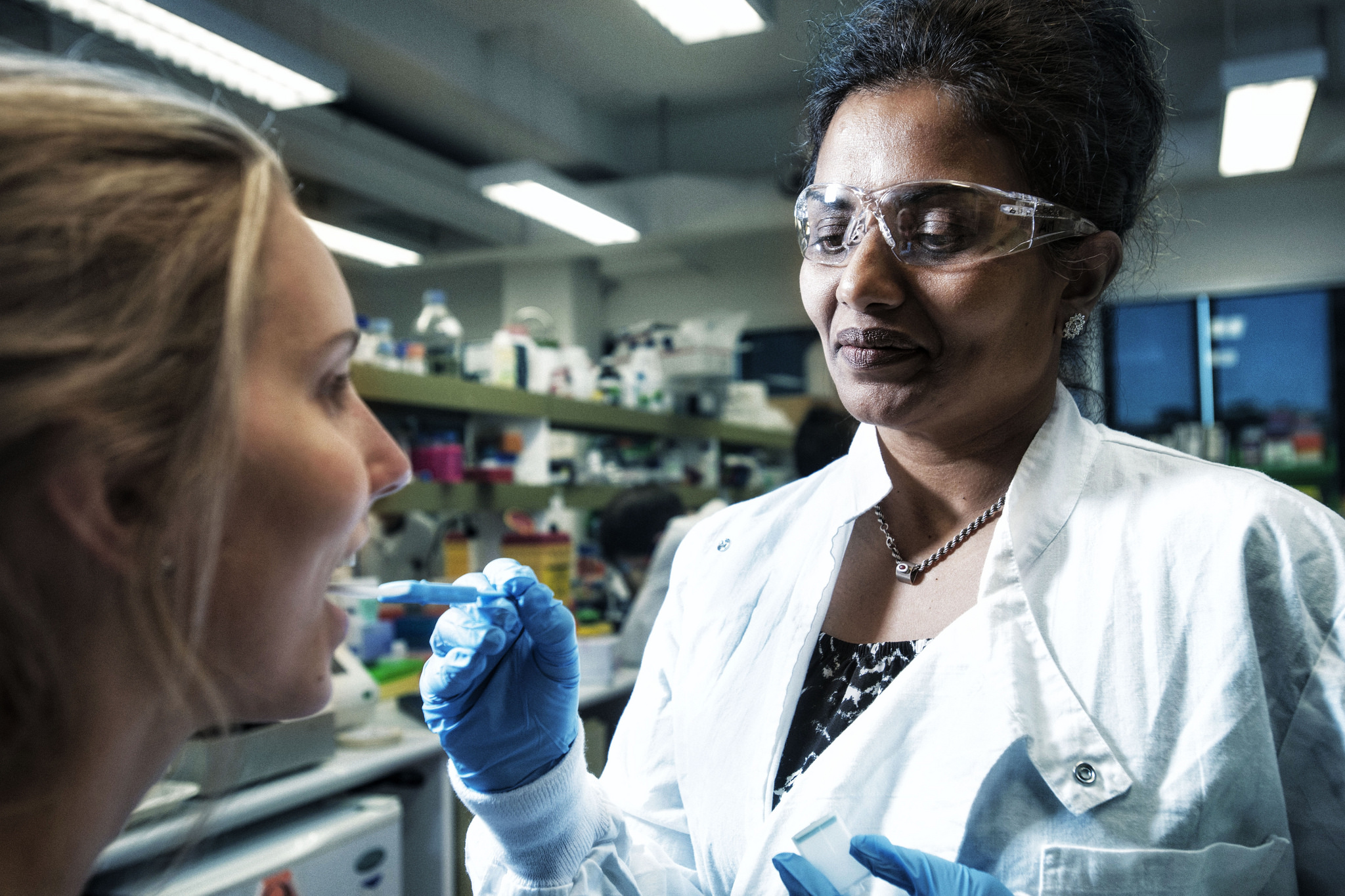 Meet a group of acclaimed inventive Queenslanders to find out why and how their Eureka moments and a tonne of hard work came to fruition to leave an indelible mark on the future. They include Associate Professor Chamindie Punyadeera (right), is a globally acknowledged pioneer in salivary diagnostics. She leads a world-class saliva research laboratory at QUT’s Institute of Health and Biomedical Innovation which focuses on developing non-invasive diagnostic tools to detect early heart disease and head and neck cancers, linking oral health to systemic diseases. Chris Jeffery is also on the panel - the CEO of Field Orthopaedics, a medical device development company, he was named the 2018 QUT Young Alumnus of the Year.
Meet a group of acclaimed inventive Queenslanders to find out why and how their Eureka moments and a tonne of hard work came to fruition to leave an indelible mark on the future. They include Associate Professor Chamindie Punyadeera (right), is a globally acknowledged pioneer in salivary diagnostics. She leads a world-class saliva research laboratory at QUT’s Institute of Health and Biomedical Innovation which focuses on developing non-invasive diagnostic tools to detect early heart disease and head and neck cancers, linking oral health to systemic diseases. Chris Jeffery is also on the panel - the CEO of Field Orthopaedics, a medical device development company, he was named the 2018 QUT Young Alumnus of the Year.
BRAIN FOOD BREAKFAST: Why The Facts Don't Matter (Festival Lab, South Bank, Friday 22 March)
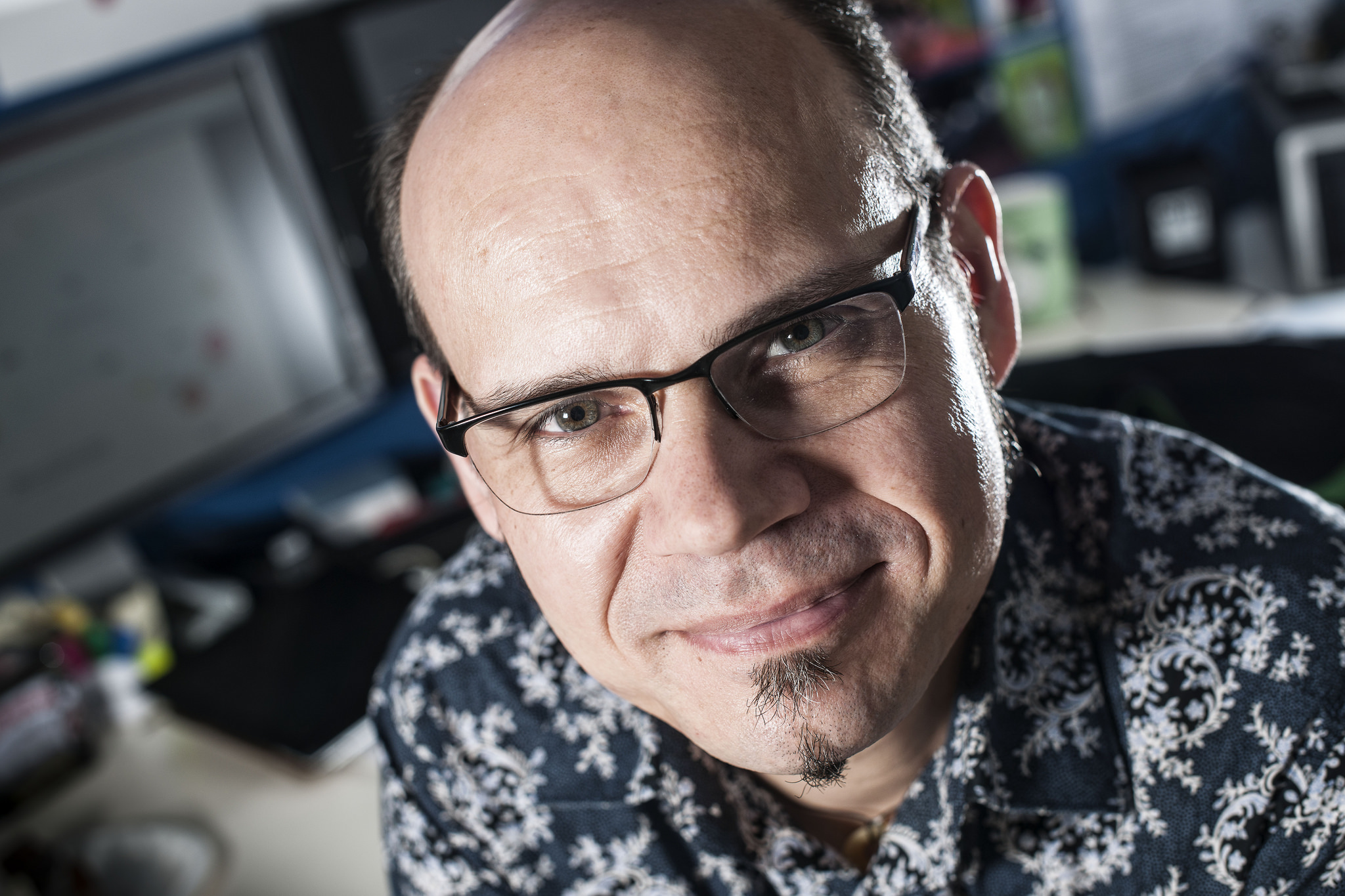 Professor Axel Bruns (left) from QUT’s Digital Media Research Centre is the author of publications including Gatewatching and News Curation: Journalism, Social Media, and the Public Sphere (2018). His current work focusses on the study of user participation in social media spaces such as Twitter, and its implications for our understanding of the contemporary public sphere. He joins a panel to discuss how we perceive facts in a world where fake news is a daily trend and frequent political football.
Professor Axel Bruns (left) from QUT’s Digital Media Research Centre is the author of publications including Gatewatching and News Curation: Journalism, Social Media, and the Public Sphere (2018). His current work focusses on the study of user participation in social media spaces such as Twitter, and its implications for our understanding of the contemporary public sphere. He joins a panel to discuss how we perceive facts in a world where fake news is a daily trend and frequent political football.
Media contact:
Amanda Weaver, QUT Media, 07 3138 3151, amanda.weaver@qut.edu.au
After hours: Rose Trapnell, 0407 585 901, media@qut.edu.au


